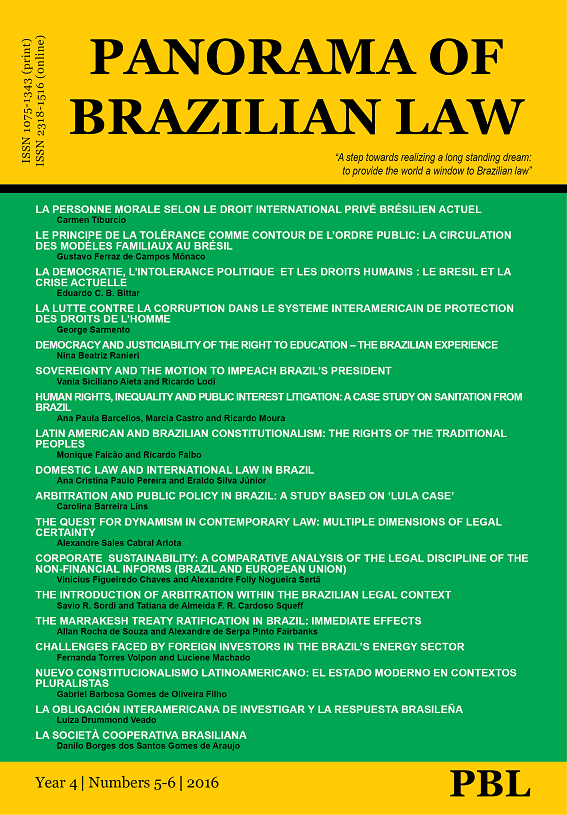HUMAN RIGHTS, INEQUALITY AND PUBLIC INTEREST LITIGATION: A CASE STUDY ON SANITATION FROM BRAZIL
DOI:
https://doi.org/10.17768/pbl.y4.n5-6.p149-171Abstract
Disaggregated data on the relative success of the UN millennium goals made clear that the progress achieved in many countries, Brazil included, was not equitable, positioning the question “How to address inequalities?” as the next pressing challenge in human rights. Public law litigation could be regarded as a tool to reduce inequality, particularly in Brazil, given a unique institution of its legal system, the Public Prosecutors Office. This paper uses public interest litigation discussing access to sanitation services to test this hypothesis. In 2013, only 58.2% of the households had access to sanitation, with significant regional inequality in coverage. Boolean analysis was applied to assess court orders (2003-2013) and results showed a disconnect between litigation and demand for sanitation, indicating that areas that were better off in various social and economic indicators were the ones receiving attention. The paper suggests reflections on how public interest litigation could target those most in need.Downloads
Pubblicato
2017-05-31
Come citare
Barcellos, A. P., Castro, M., & Moura, R. (2017). HUMAN RIGHTS, INEQUALITY AND PUBLIC INTEREST LITIGATION: A CASE STUDY ON SANITATION FROM BRAZIL. PANORAMA OF BRAZILIAN LAW, 4(5-6), 149–171. https://doi.org/10.17768/pbl.y4.n5-6.p149-171
Fascicolo
Sezione
Articles
Licenza
Panorama of Brazilian Law employs Open Journal Access policies.
Authors are fully and exclusively responsible for their submissions.
Authors who publish with this journal agree to the following terms:
- Authors retain copyright and grant the journal right of first publication with the work simultaneously licensed under a Creative Commons Attribution-NonCommercial-ShareAlike 4.0 International License that allows others to share the work on a non-comercial basis with an acknowledgement of the work's authorship and initial publication in this journal and indicating if any changes were made. If you remix, transform, or build upon the material, you must distribute your contributions under the same license as the original.
- Authors are able to enter into separate, additional contractual arrangements for the non-exclusive distribution of the journal's published version of the work (e.g., post it to an institutional repository or publish it in a book), with an acknowledgement of its initial publication in this journal.

